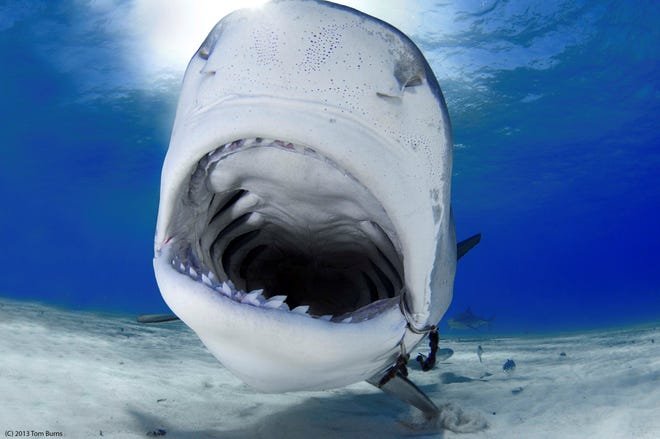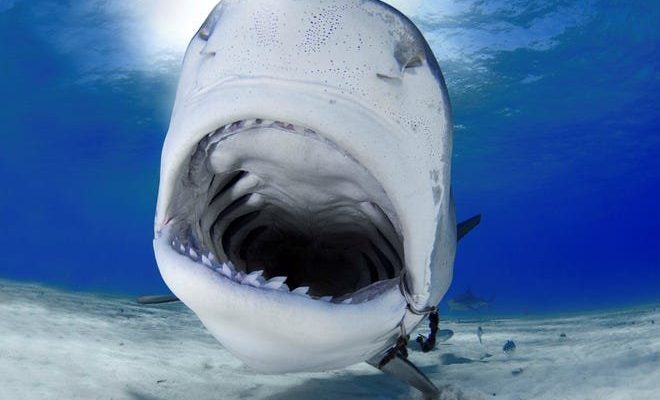
Imagine the ocean as a huge, interconnected web, where everything relies on the balance of nature. When one part shifts, like the rising temperatures of the water, it sends ripples across the entire web. In this case, sharks are experiencing these disturbances in ways that can affect their survival. So, let’s dive into how climate change is impacting these incredible animals.
Rising Ocean Temperatures
One of the main ways climate change affects sharks is through rising ocean temperatures. Water absorbs heat, and as it gets warmer, it alters habitats where sharks thrive. Certain species prefer specific temperature ranges. When these ranges shift, sharks are forced to adapt or migrate.
For instance, the great white shark, which typically enjoys cooler waters, may find its habitat shifting. If waters near the coast warm up too much, these sharks might venture further out to sea, where conditions are more favorable. The trouble is that these changes can bring them into contact with other species, including competitors and predators.
Additionally, warmer waters can impact reproduction. Sharks generally have low reproductive rates, so any disruption can have serious consequences for their populations. Here’s the thing: if females can’t find the right conditions to breed, we may see a decline in shark numbers.
Ocean Acidification
Next up is ocean acidification, a phenomenon caused by excessive carbon dioxide in the atmosphere, which eventually gets absorbed by seawater. As carbon dioxide levels rise, the ocean’s pH level drops, making the water more acidic. This acidic environment can harm marine life, especially species such as coral, which serve as vital habitats for many sharks.
Coral reefs are often referred to as the “rainforests of the sea.” They provide shelter and breeding grounds for numerous fish species, which, in turn, are prey for sharks. If the reefs deteriorate, the entire food web is affected, meaning fewer fish to sustain shark populations. You might be wondering: what does this mean for the future of sharks? Well, it can lead to a decrease in food availability, threatening their survival.
Altered Prey Availability
As oceans warm and become more acidic, the distribution of prey species can also change. Sharks have evolved to hunt specific types of fish, but when those fish either migrate to cooler waters or decline in numbers, sharks face challenges in finding enough to eat.
For example, if sardines or anchovies—common prey for many sharks—shift their migration patterns to cope with temperature changes, sharks may struggle to keep up. This can lead to malnutrition and lower reproductive success, which would ultimately affect shark populations over time.
Furthermore, the decline of smaller fish can also impact the larger marine ecosystem. When sharks aren’t there to help control fish populations, it can lead to overpopulation of certain species and the collapse of others, creating an imbalanced ecosystem.
Impact on Shark Migration Patterns
Sharks are known for their remarkable migration patterns, often traveling vast distances in search of food and breeding grounds. Climate change significantly impacts these patterns. Changes in water temperature, salinity, and the availability of prey can push sharks to explore new territories or abandon previous migration routes.
Take the example of the hammerhead shark. It’s known for traveling long distances during specific seasons. If warming waters disrupt this seasonal behavior, it could lead to confusion during crucial breeding times. Honestly, imagine a shark trying to follow its ancestral route only to find its favorite feeding grounds have vanished or become unsuitable.
This shift can also lead to increased interactions with humans. As sharks seek out new habitats, they may venture closer to coastal areas, leading to more encounters with fishermen and beachgoers. While it can be fascinating to see these animals up close, it can also lead to conflicts and safety concerns.
Threats from Fishing and Coastal Development
As climate change alters marine environments, it often leads to increased fishing and coastal development—two significant threats to shark populations. Overfishing can severely disrupt local ecosystems, especially if sharks are caught as bycatch. These encounters can be devastating, given that many shark species already struggle to maintain their numbers.
Coastal development, like building resorts or expanding urban areas, can destroy crucial habitats, such as mangroves and seagrasses. These areas not only provide breeding grounds for various marine species but also help support healthy shark populations. The loss of these habitats can push sharks into more populated areas, increasing the chance of negative interactions with humans.
Moreover, pollution from coastal activities can also harm sharks directly. Contaminants in the water can affect their health and reproductive abilities. It’s a complex web of challenges that sharks must navigate, and they often bear the brunt of our actions on land.
Conservation and the Future of Sharks
So, what can be done to protect these incredible creatures as climate change continues to shape our oceans? Conservation efforts are crucial. Many organizations are working tirelessly to protect shark habitats and promote sustainable fishing practices. Educating communities about the importance of sharks in the ecosystem can also help foster a sense of responsibility toward these magnificent animals.
Reducing carbon emissions from human activities is essential to slowing climate change. Every individual can make a difference by opting for more sustainable practices, like choosing eco-friendly products and advocating for policies that protect the environment.
Here’s the thing: the future of sharks isn’t set in stone. With collective action and a commitment to sustainability, we can help ensure that these incredible animals continue to thrive in our oceans for generations to come.
Sharks play a vital role in maintaining the health of marine ecosystems, but climate change presents a myriad of challenges they must face. From rising ocean temperatures and acidification to altered prey availability and migration patterns, the impacts are real and concerning. It’s clear that as we navigate our changing planet, we must prioritize the protection of these magnificent creatures.
By understanding how climate change affects sharks, we can take steps to mitigate its impacts and ensure a brighter future for these essential predators. Let’s work together to preserve our oceans and the incredible life within them. In the end, protecting sharks means protecting the health of our planet—something we all share a stake in.

